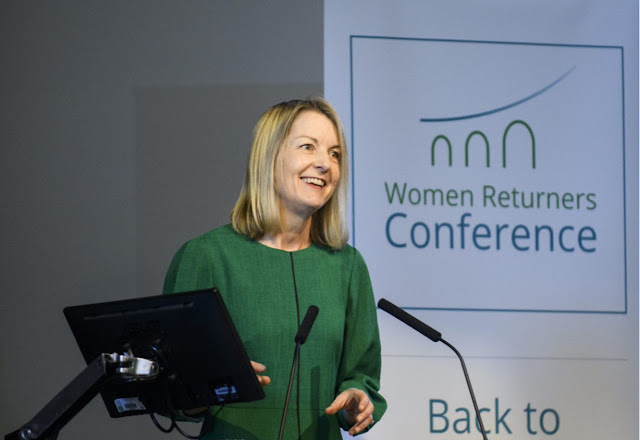Women Returners has just opened an office in Leeds led by Jude Harvey. In this blog, we talk to Jude about Women Returners' plans for expansion in the North of England.
Why has Women Returners decided to open an office in Leeds?
Quite simply because we want to champion the growth of returnships and supported hire programmes in the North of England. We've been working with organisations to help professional women return to work in the region for some time. Last year we ran the first cross-company return to law programme in Leeds and Manchester and we work with companies such as FDM, Mott MacDonald and Balfour Beatty on cross-UK programmes with opportunities in the region. We believe there's huge potential to bring the benefits of returnships to many more organisations and the highly skilled and experienced individuals who live in the North.
What is your focus for 2020?
I'm passionate about partnering with organisations to run more returner programmes in the North. Our vision is to make hiring of professionals who have taken an extended career break a normal part of regular recruitment. Large organisations here have the same challenges as everyone else, but they may have not used the solutions some of the companies in the South East have.
We'll be getting the word out that we're here.
On Tuesday 25 February (11am to 12pm) we're running a free webinar for returners - How to Return to Work After a Career Break. I'd encourage anyone who's thinking of returning to work to join myself and my colleague Kate Mansfield as we draw on hundreds of case studies to discuss returnships, strategic volunteering, networking and a variety of non-standard job-hunting techniques which career returners have used successfully to get back into work. You can find out more and register here.
And I also want to encourage individual returners to join our free Women Returners Professional Network. They'll find lots of support and advice and will be the first to hear about new opportunities in their area.
We'll also be engaging with businesses and demonstrating how returnships can help tackle challenges around recruiting talent and impact inclusion and diversity. On Tuesday 17 March (9.30am to 10.30am) we're running a free Employer Webinar so that employers can learn more about the benefits of returner programmes. Employers can find out more and register here.
What is your background?
I was born in Scotland and have lived in Leeds for 15 years - I'm married to a Yorkshireman. I worked in diversity and inclusion - and prior to that learning and development - for a number of years. While I was head of diversity and inclusion at a large telecoms company I looked at returner programmes which led me, naturally, to working with Julianne and the Women Returners team, as the experts in this area.
We worked together for about four years. I'd see women arrive at the beginning of the programmes we ran with little confidence but lots of talent and ability and then move confidently into permanent positions four months later. This was something that I personally found incredibly rewarding.
Having worked client-side, I understand some of the challenges that organisations face and can advise them on how Women Returners' solutions help address these.
I joined Women Returners in September last year and I'm hugely excited about our expansion plans.
Which geographical areas will you focus on?
We'll be focussing on growing programmes centred on the northern hubs of Leeds, Manchester, Liverpool, Leicester, York, Newcastle, Sheffield and Bradford as there are lots of key businesses in these areas.
Employers who are interested in learning more about returnships and how to recruit high-calibre professionals into their organisation should contact me at jude@womenreturners.com















